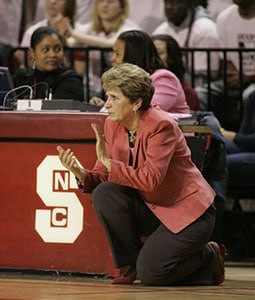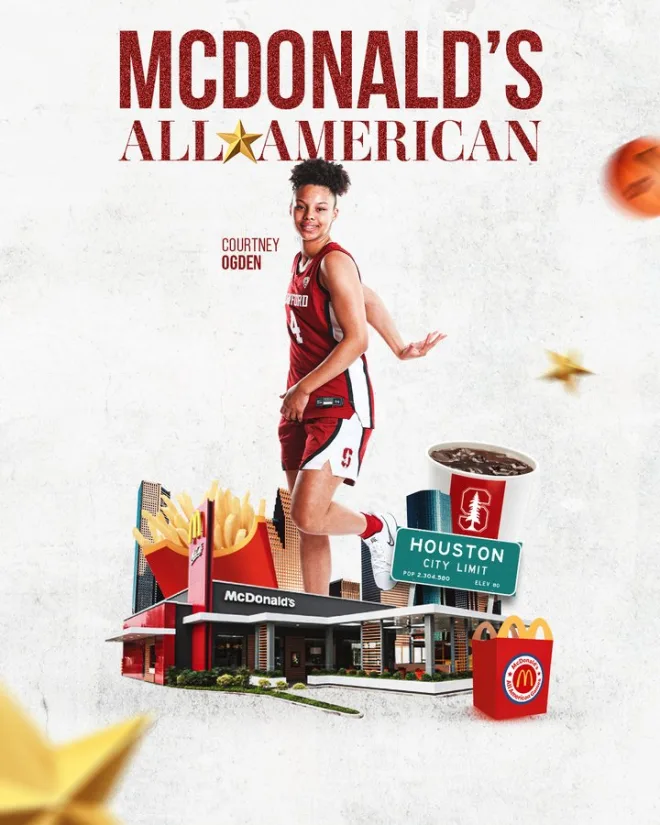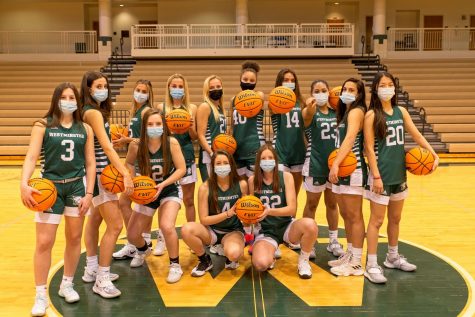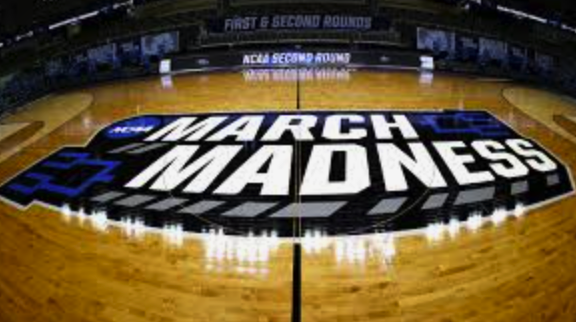Virginia exorcises playoff demons, wins title
*Congratulations to News Reporter Julia Rhee for receiving the Gold Medal in Journalism from the Scholastic Art and Writing Awards for this article!*
This year’s March Madness didn’t seem quite as crazy as those of years past. It wasn’t that there weren’t any heart-stopping, cardiac-arrest inducing buzzer beaters (there were), or that high-flying alley-oops and thundering reverse jams were traded in for textbook lay ups (Zion, anyone?), or that drama-free wins vastly outnumbered the improbable upsets that characterize March Madness (c’mon now). On second thought, madness was abound during 2019’s annual college hoops tournament, a month-long spectacle that pits blue-blood programs against schools-you’ve-never-heard-of against schools-you’ve-definitely-never-heard-of, and promises absolutely nothing besides complete mayhem. Perhaps what this March lacked was the eye-melting flashiness so characteristic of years past. What this tournament did feature, however, was a certain level of grittiness– a slow, grit-and-grinding brand of basketball, where offensive fireworks gave way to defensive slugfests, and shot clock violations were celebrated with as much zest as a fast break slam. At the center of this new brand of basketball was Virginia, a notoriously defensively-minded team dogged by hordes of college basketball pundits and twitter users alike who claimed that the Cavalier’s sluggish style of play couldn’t possibly capture a national title. And yet, the Cavs plodded on, sticking to their formula, getting a little lucky, and ultimately, cutting down the nets in Minneapolis, the air thick with confetti and relief.
This year’s rendition of the Tony Bennett-led Hoos were after more than just a national championship– they were chasing redemption. Just one year removed from becoming the first one seed in NCAA tournament history to lose to a 16 seed after suffering a blowout loss at the hands of UMBC, the stakes had never been higher. Not only did game one of the 2018 NCAA tournament shatter all playoff hopes for the Cavs, but it firmly planted them on the wrong side of history, leaving an indelible scar on a season that saw Virginia ascend to the program’s first number one ranking in the AP poll since 1982. As Villanova players donned celebratory hats and posed for pictures, grinning from ear to ear while confetti rained around them, it wasn’t hard to imagine Virginia’s Kyle Guy or De’Andre Hunter pulling the same caps over their heads had things gone differently. Instead, the Hoos watched the festivities from the comfort of their homes, stewing in the memory of their historical collapse and what could have been. For a long, painful summer, the Hoos were unable to rewrite the script or escape the memory of their failures, as each airballed three and UMBC slam dunk were immortalized across social media in the form of memes that likened Virginia’s collapse to that of the 2016 Golden State Warriors who famously blew a 3-1 in the NBA finals.
“It was painful to watch,” said Junior Alex Bradham, a devout Virginia fan. “To make matters worse, the game was plastered across Instagram so you really couldn’t escape it.”
The Warriors would prove to be resilient, capturing a championship in the following year. Could Virginia do the same, and in the process, banish their playoff demons? While that remained to be seen, the early results looked promising. With standouts Guy, Hunter, and Ty Jerome returning, Virginia opened the 2019 season with consecutive wins over ranked teams Wisconsin and Maryland, rattling off 16 straight wins and ascending to a number one ranking before falling to Duke in a 72-70 classic. Though the Cavaliers headed home with a loss, the competitive nature of the game reaffirmed their internal belief that they could compete with– and beat– any team in the country, regardless of whether or not the opposing team boasted a starting lineup full of transcendent, once-in-a-generation type players and future NBA lottery picks, as Duke did.
Despite the overwhelming success that Virginia enjoyed at the beginning of the season, their efforts were overshadowed by the six foot seven, 285 pound frame of Duke’s freshman phenom, Zion Williamson, the consensus number one pick in this year’s NBA draft and purveyor of the mind-boggling dunks clogging your Instagram feed. With each thundering block and highlight-reel dunk, the hype and expectations surrounding Williamson and Co. grew exponentially, whereas the Cavaliers, who seemed to prefer a perfectly executed defensive slide to a perfectly executed alley-oop, toiled in relative anonymity while piling up wins and gaining confidence.
“I think everyone expected prestigious programs like Duke or Kentucky to win it all,” said sophomore Zac Walpole. “Especially because Duke’s latest recruiting class featured the most dominant freshman in college basketball history, Zion, they seemed unstoppable.”
In the end, the unpredictable nature of March Madness brought the high-flying antics of Duke and other regular season juggernauts back down to earth, as Williamson’s reign of dominance atop college basketball ended not with a blown out shoe, but with an upset loss to Michigan State in the Elite Eight. Although Michigan State was only one seed lower than Duke, the thought of a talented but unheralded squad like the Spartans topping the Blue Devils was almost inconceivable to everyone from ESPN’s Stephen A. Smith to the 39% of NCAA Bracket Challenge participants who pegged Duke as the national champions. But it shouldn’t have been surprising– Tom Izzo’s Spartans and other contenders like Virginia built their programs upon a model that had regularly churned out national titles until the relatively recent emergence of the one-and-done model, in which programs build their team upon dominant college freshman who are destined turn pro after just one season. As Duke remains one of the most notable programs championing this one-and-done model, Michigan State’s upset was indicative of this year’s tournament favoring the more reserved and traditional teams.
“I don’t think the ‘one and done’ model is conducive for national championships,” said sophomore Aydin Bandukwala. “It hasn’t worked yet, which is why I always bet on teams that focus more on developing guys for four years.”
The Cavs, proponents of the latter model, flew through the first two rounds with a double-digit margin of victory in both wins. To win a national championship, however, they would require something more, something so wonderfully unpredictable that it could not be accounted for within Bennett’s meticulous game plans. In the Elite Eight, for example, when the Purdue Boilermakers led by two with 5.9 seconds left on the clock, and each step, each dribble nudged Virginia closer to the brink of elimination– the Cavs needed something special. Something exactly like freshman Kihei Clark whipping a season-saving pass through traffic and into the outstretched arms of Mamadi Diakite, who sunk a textbook jumper as time expired to send the game to overtime, where they edged the Boilermakers by five. Or, just one week later, when the Cavaliers looked dead in the water as the buzzer blared and Guy’s potentially game winning three careened off the rim. But then, cutting through the chorus of elated Auburn fans and players, a referee’s piercing whistle sent Guy to the line with with the game on the line. The Cavs needed something like Guy’s three clutch free throws, which sealed a 62-63 win and a trip to Minneapolis, the promised land.
Guy’s game winners weren’t anything like the skying step back threes that kids hoist in their driveways a la James Harden as they count down from three. In the end, however, it doesn’t matter– game winners are game winners. Still, it is almost too perfect that college basketball’s least flashy team punched their ticket to the national championship game, of all places, with the least flashy game winner possible.
Regardless of how they got to Minneapolis, Virginia was there to stay. Right from the opening whistle they took control, playing to their strengths and minimizing the effects of Texas Tech’s Jarrett Culver, Big 12 Player of the Year and projected lottery pick. Although the Red Raiders mounted a comeback of their own late in the fourth quarter to briefly claim a three point lead, a De’Andre Hunter dagger quickly turned the tide back in Virginia’s favor. With just 12.9 seconds left to play, the Cavaliers executed Bennett’s defensive scheme perfectly and managed to stymie Texas Tech’s attack long enough to send the game to overtime, where they were able to ride out a win on the heels of eight made free throws in the closing minutes.
It was a feel good story for the ages– a rare instance of full-circle redemption in the volatile world of college basketball. Minutes after the final buzzer, the Cavaliers smiled and posed for pictures, the navy and orange confetti blanketing the hardwood and the twine held between their fingers serving as proof that they were not, in fact, dreaming. They were national champions.





